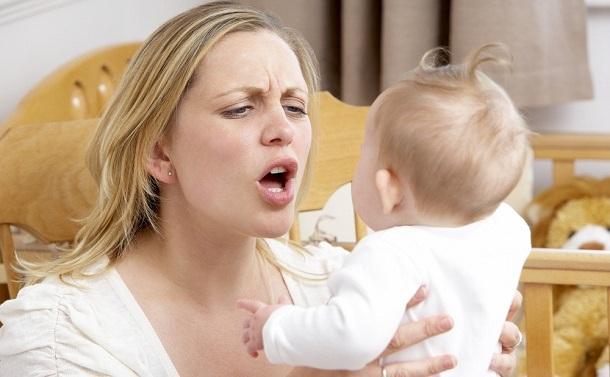After giving birth, the 'baby blues' is a brief period of feeling down, emotional, and crying. It only lasts around two weeks after giving birth. It is perfectly normal to feel this way. Postpartum depression can be defined as depression lasting more than a few weeks, or if your symptoms develop later.

After giving birth, the ‘baby blues’ is a brief period of feeling down, emotional, and crying. It only lasts around two weeks after giving birth. It is perfectly normal to feel this way. Postpartum depression can be defined as depression lasting more than a few weeks, or if your symptoms develop later.
It can begin at any point throughout the year following childbirth, and it might start gradually or suddenly. It varies in severity from mild to severe. It could be challenging to express your feelings. If you tell someone you’re depressed, you can feel that they expect you to be happy and joyful with your new baby, or you might worry that you’re a “bad” parent. It’s important to remember that postpartum depression can strike anyone at any time and isn’t your fault! It’s never too early or too late to seek help.
Postpartum depression is also known as postnatal depression or the postpartum blues, is more common than you think. It is surprising how many times I have seen a young woman in my clinic presenting with depression after the birth of her child. Having a baby is quite an emotional time in a woman’s life and for some it can be a real emotional roller coaster with so much to deal with. Being depressed is just not one of the things that a new mother would expect.
There are many reasons why a woman may feel down or anxious after having her child, and one of the biggest ones can be the sheer overwhelming fatigue, especially if she has one or more children to care for as well as her newborn baby. The main thing to remember is that most all cases resolve themselves over time, especially if there is plenty of support.
Postpartum depression is defined as a mood disorder that begins after childbirth and lasts up to eight weeks (with some extending to a year). There are basically three degrees of this form of emotional lability:
References
- Gilbert Evans, S.E., et al., 3alpha-reduced neuroactive steroids and their precursors during pregnancy and the postpartum period. Gynecol Endocrinol, 2005. 21(5): p. 268-79.
- http://www.ncbi.nlm.nih.gov/entrez/query.fcgi?cmd=Retrieve&db=PubMed&dopt=Citation&list_uids=16373246
- Nappi, R.E., et al., Serum allopregnanolone in women with postpartum “blues”. Obstet Gynecol, 2001. 97(1): p. 77-80.
- http://www.ncbi.nlm.nih.gov/entrez/query.fcgi?cmd=Retrieve&db=PubMed&dopt=Citation&list_uids=11152912
- Harris, B., et al., Maternity blues and major endocrine changes: Cardiff puerperal mood and hormone study II. Bmj, 1994. 308(6934): p. 949-53.
- http://www.ncbi.nlm.nih.gov/entrez/query.fcgi?cmd=Retrieve&db=PubMed&dopt=Citation&list_uids=8173402
- Chang, J., Y. Zhang, and L. Cui, [Impact of placental hormone withdrawal on postpartum depression]. Zhonghua Fu Chan Ke Za Zhi, 1995. 30(6): p. 342-4.
- http://www.ncbi.nlm.nih.gov/entrez/query.fcgi?cmd=Retrieve&db=PubMed&dopt=Citation&list_uids=7555367
- 5. Bloch, M., et al., Effects of gonadal steroids in women with a history of postpartum depression. Am J Psychiatry, 2000. 157(6): p. 924-30.
- http://www.ncbi.nlm.nih.gov/entrez/query.fcgi?cmd=Retrieve&db=PubMed&dopt=Citation&list_uids=10831472